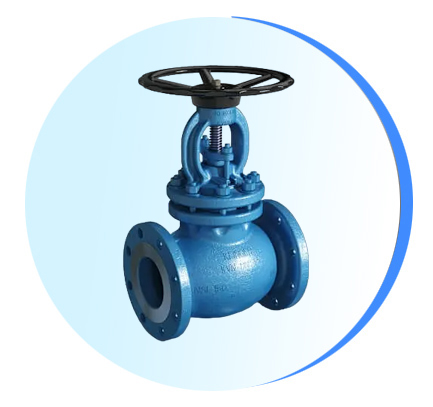
Pawar Industries is leading Manufacturers in Industrial Valves
Industrial valves are crucial components used in a wide range of industrial applications to control the flow, pressure, and direction of fluids and gases. These valves are designed to meet specific requirements based on the application, process conditions, and medium being handled. They play a vital role in maintaining operational efficiency, process safety, and product quality in industries such as oil and gas, chemical processing, power generation, water treatment, and many others.
Industrial valves come in various types and configurations to suit different applications. Some common types include gate valves, globe valves, ball valves, butterfly valves, check valves, and plug valves. Each type has its own unique features and advantages. For example:
Gate valves : These valves feature a sliding gate or wedge that moves perpendicular to the flow direction to control fluid or gas flow. They provide a tight seal when closed, making them suitable for applications requiring full shut-off.
Globe valves : Globe valves have a disc or plug that moves perpendicular to the flow direction to regulate fluid or gas flow. They offer excellent throttling capabilities and precise control, making them ideal for applications where flow modulation is required.
Ball valves : Ball valves use a rotating ball with a bore to control fluid or gas flow. They provide quick on/off control, low friction loss, and tight sealing, making them suitable for various applications.
Butterfly valves : Butterfly valves have a disc that rotates on a shaft to regulate fluid or gas flow. They offer a compact design, low pressure drop, and quick actuation, making them suitable for large flow applications.
Check valves : Check valves allow fluid or gas flow in one direction and prevent back flow. They are essential in applications where preventing reverse flow is critical.
Plug valves : Plug valves have a cylindrical or tapered plug that rotates within the valve body to control flow. They offer tight sealing and are suitable for applications requiring quick on/off control.
When selecting an industrial valve, certain specifications need to be considered, such as valve size, pressure rating, temperature range, materials of construction, and end connections. These specifications ensure that the valve can handle the specific process conditions and media involved in the application.
In addition to these specifications, factors like valve actuation (manual, electric, pneumatic, or hydraulic), leakage class, and industry standards (such as API, ASME, or ISO) are also taken into account to ensure the valve meets the required performance and safety standards.


